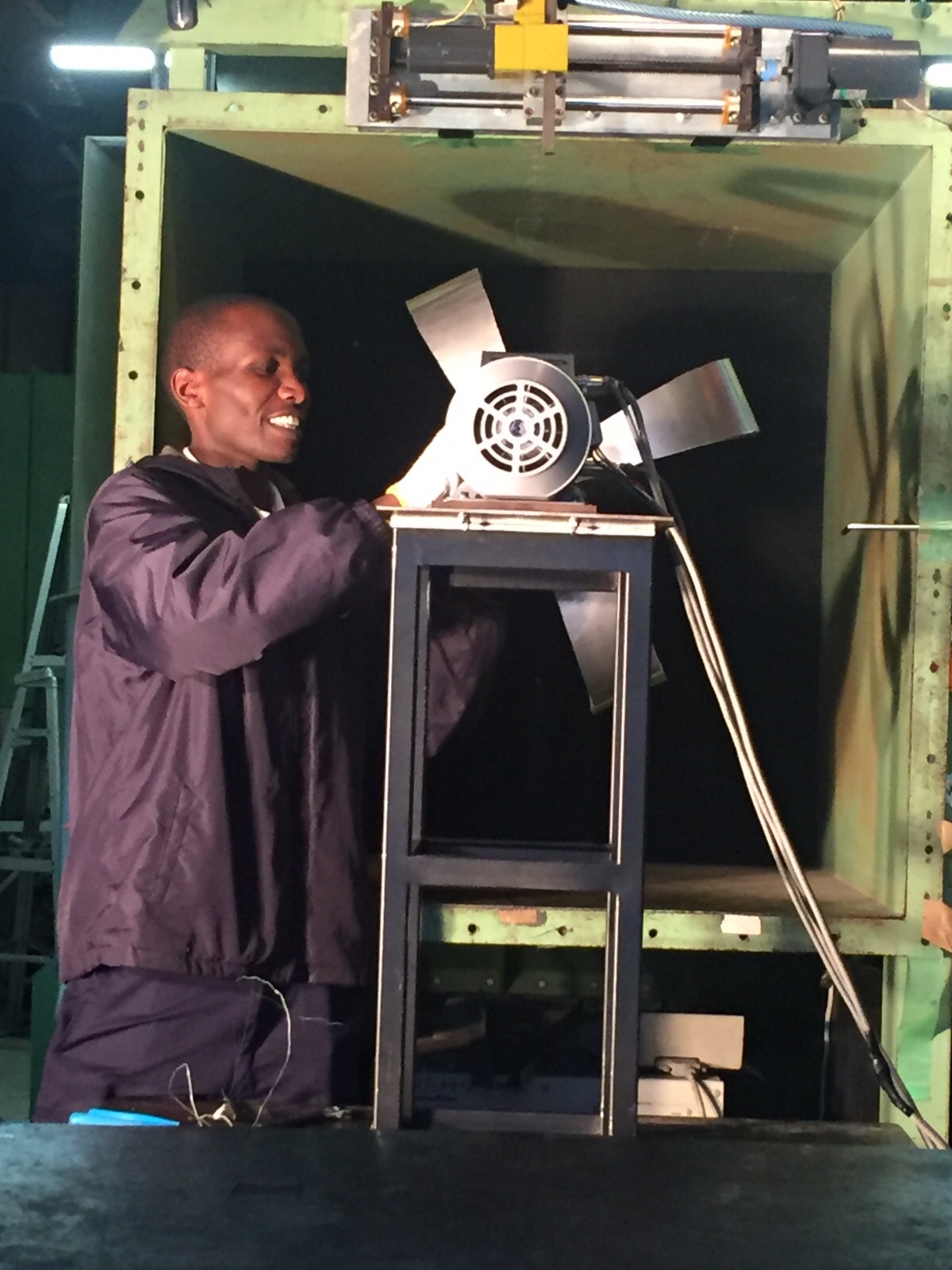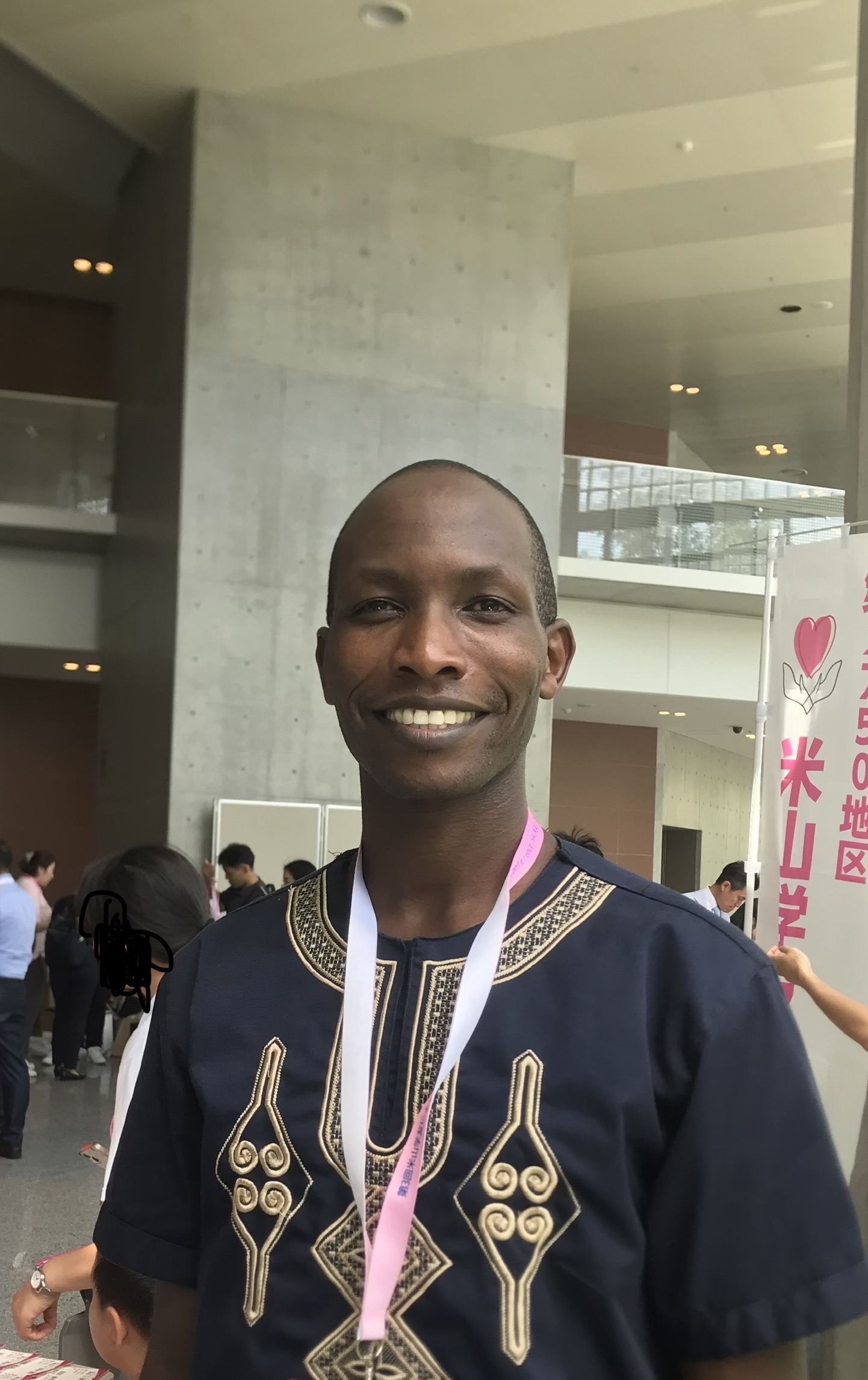New Faculty Spotlight: Dr. Eliud Kiprop
This month, we are spotlighting Dr. Eliud Kiprop, who joined our team full-time in April 2025 as Assistant Professor of Environmental Studies. Dr. Kiprop earned his PhD from the University of Tsukuba and has completed extensive research in the fields of renewable energy and electricity supply grids. We're fortunate to have him. Dr. Kiprop will be teaching in both LUJ's Undergraduate program and our recently launched Master's programs in Business Administration (MBA) and Leadership and Organizational Development (MS-LOD).
Read on to learn more about Dr. Kiprop.
Yes, I already knew I wanted to study engineering before starting university. I first got the idea back in elementary school—mainly because engineering was seen as a solid path to a good job. That was a common belief in my community.
Things became clearer in high school. I went to an all-boys school where former students often came back to talk about their careers. Most of them had gone into engineering, and their stories really stuck with me. That’s when I started thinking more seriously about what kind of work I might actually enjoy.
Growing up in rural Kenya, I was always curious about machines and how they worked. Engineering seemed like a natural fit, and it also felt like a way to open doors and move beyond the limits of village life. In Kenya, students usually select their majors before joining university, so that decision had to come early.
Yes, during my master’s studies, I had the opportunity to work on two applied energy projects. The first focused on improving the performance of a ribbon wheel wind turbine—a unique design with twisted blades optimized for low-wind environments. My goal was to enhance its efficiency through structural adjustments, making it more suitable for areas with inconsistent wind speeds.
In another project, I worked on converting a small submersible pump into a micro hydro turbine generator. I tested it under various operating conditions to determine its viability as a low-cost solution for rural electrification. The findings were published in Sustainable Energy.
These experiences deepened my interest in how appropriate, affordable technologies can be adapted to solve real energy challenges in developing countries.
Currently, my research focuses on how industries—such as tea processing factories—can optimize the use of renewable energy systems like solar PV and battery storage by using tools like REopt, which consider factors such as site-specific energy needs, available land area, local weather patterns, and economic constraints to reduce greenhouse gas emissions, lower costs, and improve energy reliability.
If I ever did get a full week off—yes, that does sound like science fiction—I’d probably spend a lot of it on the farm. I have a real passion for farming, and I find tending to crops both relaxing and grounding. It also brings back fresh memories of my childhood, growing up on a farm and learning to appreciate the rhythm of nature and hard work.
I also enjoy watching sports—especially Formula 1 and athletics. There’s something about the energy, speed, and precision that I really enjoy.
And of course, I’d love to catch up with friends. The only unfortunate thing is that in this imaginary week off, I’m pretty sure none of them would have time off too—but if they did, I’d spend a good part of the week just talking, laughing, and enjoying their company.
The two biggest challenges for me were language and culture—and, of course, the weather. I first settled in rural Japan, where finding someone who spoke English was almost impossible. So I had to rely on a mix of gestures, facial expressions, and the handful of Japanese words I picked up early on. I definitely overused those few words—I think they were working overtime!
Culturally, the shift was even more surprising. Japanese society is very structured, and many of the social rules feel set in stone. That works well once you understand the system, but when you’re new and can’t speak the language, it can feel like walking through a maze with no map. One small but memorable example was the use of the hanko (personal seal). I once forgot to bring mine when signing an official document, and when I asked if I could just sign instead, the answer was a firm no. I had to go all the way back home—more than an hour round trip—just to stamp a single form. That was the day I truly understood how important the hanko is here.
Another thing that took some getting used to was greetings. In Kenya, a handshake is second nature—even a sign of respect. So, I kept reaching out to shake hands, only to be met with awkward silence and puzzled looks. My hand would just hang there until I slowly learned: in Japan, it’s a bow, not a handshake.
And then there was the weather. Coming from near the equator, I was used to just sunny and rainy seasons. My first winter and summer in Japan were equally shocking. I remember thinking, “I can’t wait for summer” during a freezing winter—and then saying, “I miss winter” as soon as the summer heat kicked in. I quickly realized I wasn’t prepared for either!
---
Follow LUJ on Instagram

